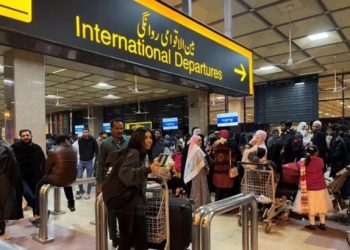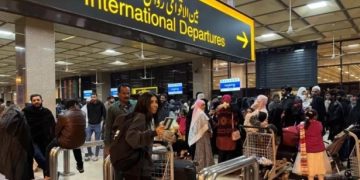Diplomatic relations have been restored between Qatar and four other Arab nations that had been boycotting it for over three years. The resolution of the long-running crisis amicably could bring winds of change in the Middle East and reaffirm Arab unity.
Saudi Arabia, UAE, Bahrain, and Egypt cut ties with Qatar in 2017, accusing it of supporting terrorism and demanding to curb bilateral relations with their arch-nemesis Iran. In recent months, Kuwait and the United States stepped up efforts to end the diplomatic stand-off. After months of negotiations, a ‘solidarity and stability’ agreement was finally reached at the GCC summit. A day earlier Saudi Arabia had agreed to reopen its land and sea border and airspace with Qatar.
Qatar has long practiced an ambitious foreign policy different than Arab states and has been accused of cozying to Iran and supporting groups such as the Muslim Brotherhood and Hamas. This has angered its Arab neighbours and eventually, after Trump’s visit to Saudi Arabia, they served all ties in 2017. Qatar’s only land border was closed, ships were banned from docking at several ports and the airspace was closed.
Qatar was presented a list of 13 demands as conditions to end the embargo that included downgrading ties with Iran, closing a Turkish base and winding down a media channel. Qatar refused to comply and accused its neighbours of attacking its sovereignty. As a result, it became even close to Iran and Turkey as it opened new trade routes and use its wealth to sustain its economy.
US President Trump initially sided with Saudi Arabia in the conflict, even denouncing Qatar as a ‘funder of terrorism’ but softened his stance. Qatar houses the largest US military base in the region and eventually pressured all sides to end the standoff and counter Iran instead. Kuwait, which remained neutral in the conflict, brokered the deal.
It needs to be seen how lifting the blockade will change policies in the region. It is unlikely that Qatar will downgrade ties with Iran or Turkey. These three countries along with former Malaysian Prime Minister Mahathir Mohammad even attempted to build a parallel initiative before being sabotaged by the Gulf countries.
The economic blockade had shattered the notion of Gulf unity which has been resolved but many countries particularly UAE still have doubts whether Qatar will eventually change its way. It is, however, welcoming that the conflict has been resolved in an amicable way.



























